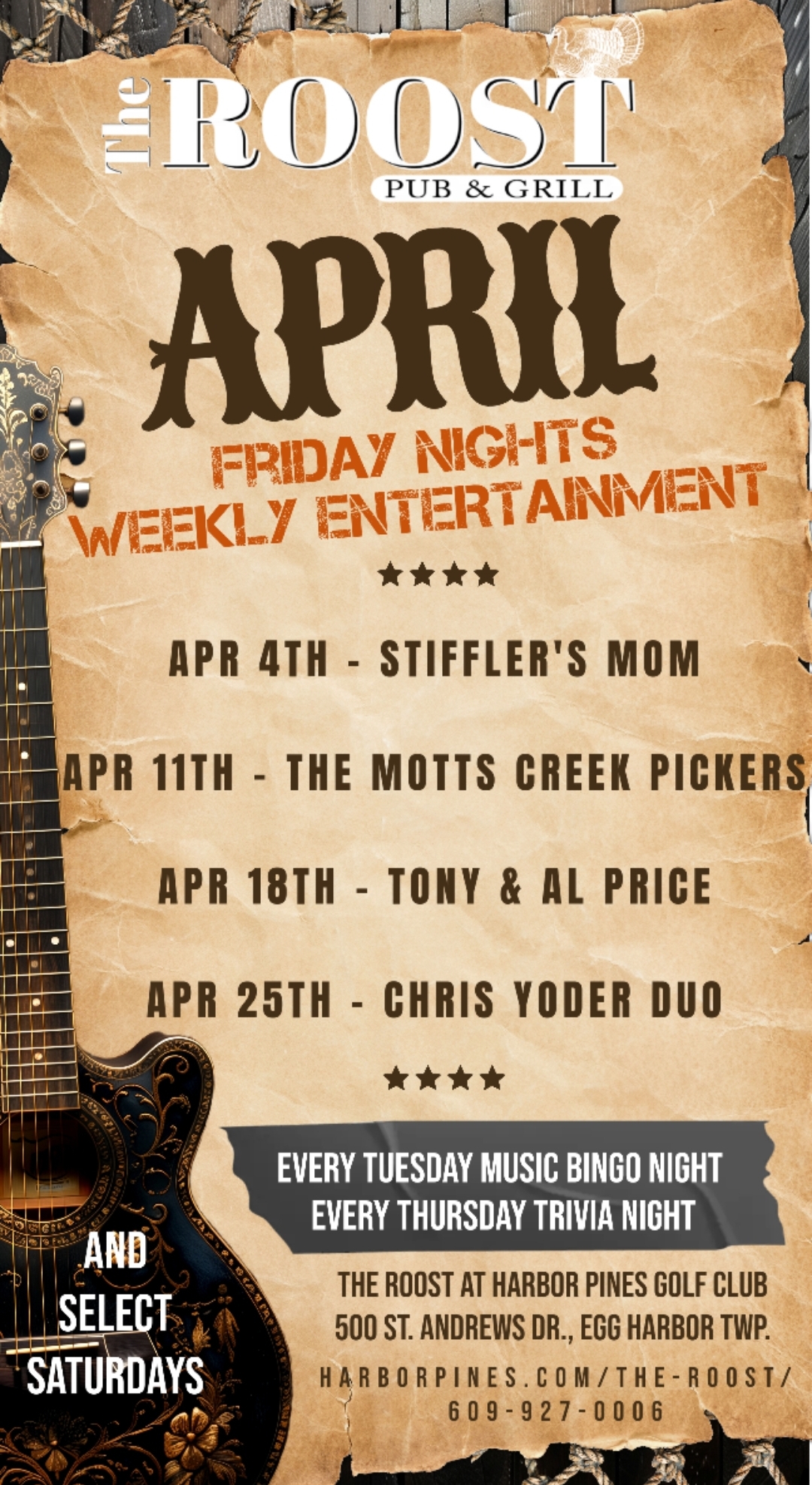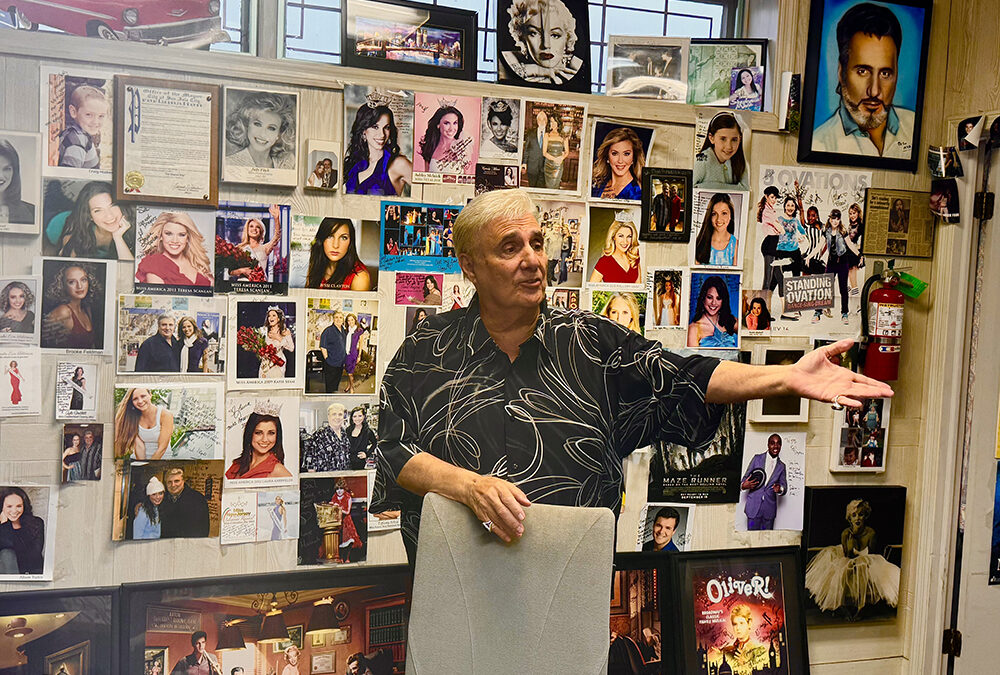By Chuck Darrow
Walk into Sal Dupree’s modest business suite in Linwood’s Central Square and you are immediately overwhelmed by dozens of photos that seem to cover every available millimeter of wall space. Many are pictures of Dupree in various stages of his life, but most are professional headshots of young people, the majority of whom are female.
All of the shots are souvenirs of a unique career that, at age 80, the garrulous, genial Brooklyn native continues to pursue—despite the curveballs that have been thrown at him throughout his life, from spending a decade of his youth in a South Philadelphia orphanage to the COVID-19 pandemic that severely crippled his work as a legendary vocal coach. And while the word “legendary” has been overused to the point of near-meaninglessness, it absolutely applies to the teddy bear of a man whose somewhat large visage is usually framed by a huge smile that signals his warm, engaging personality.
To list all of those who through the decades have benefitted from his mentorship would likely consume several pages of this publication. But the talent roster includes megastar popster Pink (when she was still Alecia Moore and taking her first tentative steps toward global stardom), former Miss America Suzette Charles, actors Anne Heche (“Donnie Brasco”), Heather McComb (“Party of Five”) and Mark Indelicato (“Ugly Betty”) and Broadway stalwarts Kristi Coombs {“Annie”) and Michelle Nigalan (“Miss Saigon”), as well as Katie Stam (Miss America 2009) and Bianca Ryan, who won the million-dollar grand prize on the first season of “America’s Got Talent.”
They are just some of the more glittering names of those who, thanks in large part to the training they received from Dupree, have defied the odds and carved out show business careers.
And while most folks his age are enjoying their “golden years,” the erstwhile “show band” vocalist who spent years in casino lounges and nightclubs from coast to coast is still sharing his knowledge with the next generation of stars. Which is not a little ironic considering he never intended to teach others how to sing.
Dupree started teaching in the 1970s. He had come off the road and, in order to establish a steadier, more-normal life for his wife Florence (or “Chickie” as everyone calls her; they’ve been married 58 years) and their daughter, Kim, he was working as a freelance hair stylist while living in Ventnor and driving Kim to weekly vocal lessons provided by Russell Faith, who worked with Andrea McArdle, Broadway’s first “Annie,” among other famous warblers.
“I would drive her up to Northeast Philadelphia, and she’d be singing in the back of the car,” he recalled. “And I’d say, ‘You know what? I think she’s gonna be a singer like me.’ So, I started training her when she was 9.”
The combination of genetics and working with her dad paid off as Kim (now Kim Wateska) began competing in various Shore-area events, often against Mays Landing native Charles. “Suzette would win, and Kim would come in second,” he said. “Kim would win, and Suzette would come in second. And then, when [people] would hear Kim, they would say, ‘Who’s teaching her?’ ‘Well, her dad, is teaching her.’”
That led to Dupree–who, with the 1978 advent of legal casinos in Atlantic City, returned to performing as lead singer of the popular lounge band, Sal Dupree & Elegance–launching in earnest his career as a vocal arts teacher. Impressed by hearing his students sing in pageants or school productions, parents of other kids would inquire as to who was teaching them. More and more the answer was “ Sal Dupree,” and soon enough, he had become the go-to guy for aspiring entertainers from the Atlantic City region and beyond (Pink, for example, grew up in Bucks County north of Philadelphia).
Through the years, many parents have brought their children to Dupree in the belief that he could turn anyone into a professional-level performer. But he was quick to put that notion to rest.
Instead, he insisted, what separates true vocalists from those who want to sing is something neither he nor any other human can control. He described how it goes when it’s clear the student just doesn’t have the element that is most crucial to vocal ability: the sense of pitch, which allows a person to detect the differences between high and low tones—especially when the difference is negligible.
“I do it in a very gentle way to make the child and the mother understand,” he said. “‘It’s got nothing to do with you, sweetie. God didn’t give you pitch. You don’t hear tone. But you’re 8. That doesn’t mean that maybe two years from now your ear might adjust and you’ll understand the root of a chord and hear it.’”
He described his philosophy as: “If you sing nasal, I’ll break you of that habit. That’s just tongue [placement]. I’ll show you how to use the diaphragm–and I use the term belly for [students] so they understand. ‘I need you to put your belly in.’
“What I won’t do, though, is take a child [without natural pitch].”
As noted above, enrollment at his school, Dupree Performing Arts, has not fully rebounded from the effects of the COVID-19 pandemic. But he’s still optimistic that the parents of a new generation of talented kids will realize the value of having their children study with him. Nonetheless, there will come a time when, whether by choice or necessity, he’ll call it a day. And when that time comes, his request for posterity is a fairly modest one.
“I would hope,” he offered, “that I’ll be remembered as being caring and understanding [and as] an honorable teacher.”
For more about Sal Dupree and Dupree Performing Arts, go to dupreeperformingarts.com.















